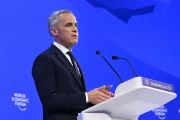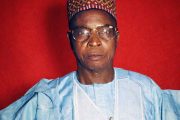The unbeatable characterisation of elections across Africa as quinquennial warfare would tend to make election coverage a key issue of concern for an electoral research institute in Nigeria. The Electoral Institute, the research organ of Nigeria’s Independent National Electoral Commission, (INEC) manifested such sensitivity earlier today when it made electoral reportage the subject matter of its 13th Public Lecture, the tradition by which it interrogates topical issues vis-a-vis its mission. The full title of the lecture was “Media and Electoral Reportage in Nigeria: An Assessment of Professional and Ethical Issues”. This particular lecture brought together players from diverse domains such as academia, the media, policy actors, election management related bodies, diplomats, labour leaders, heads of international NGOs, heads of government media institutions and political party leaders, among others.
For Professor Abubakar Momoh, the Director-General of the institute, the question is what is the media doing when it is reporting election? Is it pandering to any interest to the detriment of its Others? How is it representing facts? Is it being politically correct? And what happens to national interest? Above all, who guides the media in doing what it does to an election? We must take electoral reportage more seriously, he argues, insisting that the media has influence. He has no answers, he says. What he has tried to do is to find the best resource person to lead the discussion and, as far as he is concerned, Professor Adigun Agbaje must be that scholar in media intellectualism for anyone looking for the best in the last three decades in Nigeria.
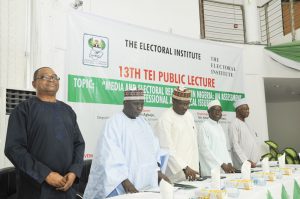
Standing up for the Nation – Prof Agbaje;Alh Baba Shettima Arfo;Modibbo Kawu;Mohammed Haruna and one other VIP
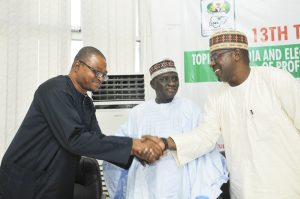
Moddibbo Kawu ,DG of NBC and Chairperson of the occasion in a handshake with Professor Adigun Agbaje of the Universty of Ibadan at the Lecture.
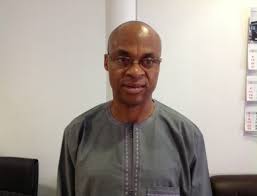
Prof Abubakar Momoh ,DG ,The Electoral Institute.
Alhaji Baba Shettima Arfo who represented the Chairperson of INEC, Alhaji Modibbo Kawu, the Director General of the National Broadcasting Commission, (NBC) and other speakers at the opening ceremony basically agreed with Momoh, with INEC Chairman saying the topic of the lecture was so timely given media representation of recent elections. The INEC boss proceeded to declare his own office, that of his Chief Press Secretary as well as the INEC Director of Media Affairs all open to the media, saying election matters were very sensitive and the way they were reported had potentials for crippling scenarios.
Professor Adigun Agbaje of the Department of Political Science, the University of Ibadan who served as the Guest Lecturer lived up to his billing of the academic as the anti-thesis of murmuring. He started the lecture by flatly declaring his inclination to provocation. His first provocation was an attack on closure. There can be no final word on any matter, he said, a position which stretched to the second where he frowned at the common conception of Nigerian exceptionalism in a way that closes it off from worldwide experiences of typical problems or issues. In relation to the subject matter, he meant to convey the point that nothing about the media and elections in Nigeria are unique to Nigeria. That is also what is happening elsewhere, barring minor local differences.
The world is in a flux and the way variables such as ethics and professionalism work out are bound to be on the rise. Nothing is settled anywhere, including who could make it to power. So, for him, even the United States of America is still democratising and only intellectual and policy laziness might position anyone to think of Nigeria’s experiences of realities as exceptional to it.
Agbaje’s privileging of context then led him to situating the question of attaining ethical and professional heights in the contemporary economics of media in Nigeria; the challenge of corruption as it relates to it; the declining capacity of public oversight processes as well as the primacy of forms over substance, broadly and specifically. But he does not subscribe to pessimism.
Locating his analysis in an America study of the media community on the key issues in the codes of ethics, he reveals the lack of consensus on any of such, be it the question of how far newsrooms should be from the ‘advertisement department’; the issue of silent assistance to the state/government; the journalist’s membership of political parties or assistance to same and so on and so forth. Yet, it has been shown that voters are coming under the influence of media representation of electoral dynamics: events are enjoying better promotion than issues; public relations practices have become central to journalism loyalty to clients are bending ethical considerations and there are even increasing evidence of deception.
In seeking to demonstrate this crisis in relation to Nigeria, he cited a number of ethical infractions such the degree of partisanship a one day monitoring of an NTA station showed in 2015 against the ground norm that public institutions should not be used to further the partisan interests of those in power; campaign advertising excesses represented by the advertisement that speculated the possible death of a presidential candidate and the disinclination of the media houses to apologise, thereby introducing a tendency of intolerance to criticism; issue of limited coverage of elections once the more dramatic aspect is over; the exclusion of the electoral dynamics in the local government areas in electoral reportage; the lack of deep analysis that could underpin informed decision in the coverage of INEC. Instead of such, the focus is more on big names. Agbaje mentioned two more drawbacks in electoral reportage in relation to Nigeria. These are, the situation in the 1980s whereby the highest qualification of the average journalist was a diploma unlike today when it is a Masters Degree but when the quality of reporting today is more hopeless than in the 1980s. The second is the distinction that we must now make between an organisation and an institution. In Nigeria, we have organisations but not institutions because these organisations are not infused with the right quantum of values that distinguishes one from the other.
The empirical implication of his argument was demonstrated in the fact that a regulatory institution could take the incumbent South African president to court and the court fined the president, pronouncing that he must pay and the president had to seek a loan to sort that out. All said, Agbaje is, however, sure that these manifestations of the crease between ethics and professionalism could only slow down but not halt the march to democracy in Nigeria.
Mohammed Haruna who had to stand in for Modibbo Kawu as the Chairperson of the sharply occasion summarised the presentation and yielded the floor to people who had questions, comments and observations to make. It was a torrent, the most dramatic, however, being that of the NTA and NAN in 2015. While NAN’s was a lamentation of its experience of governmental intrusion into its hitherto well guarded tradition of being very objective, NTA’s was some smart justification of its professionalism. In summary, NTA’s ideology of news is that it has to maintain the social order; it cannot follow the ‘sensationalism’ of CNN because “we need to have a country” over and above anything. But then, Mohammed Haruna told the story of how the Civil War started with the bombing of Kaduna Airport as it was then. General Hassan Usman Katsina, the Military Governor asked the New Nigerian not to publish anything about it. Adamu Ciroma, the editor of the paper said they will publish the story because it was real. He was reported to have argued that as the paper on the ground, the New Nigerian must be the source of all other details about what had happened. Well, in those days, you didn’t commit treason by arguing against the position of people in authority. So, Adamu Ciroma and the editorial gang at New Nigerian did their journalism. Later, the question of who started the war between the Federal and the rebel forces became a debate and it was the New Nigerian story of the bombing that served as the evidence of who first launched an attack. Without saying so, Mohammed Haruna was making a generational statement to younger managers of government media today to be careful against confusing mediocrity with national interest. That was never to say that any speakers failed to take note or distinguish between the transnational and the national media in reporting events in Nigeria.
It was a very stimulating outing for which the brains at work at Nigeria’s The Electoral Institute deserve commendations








